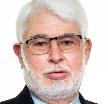Sunday next but one, 11th November 2018, will be the hundredth anniversary of the end of what we now know as the First World War. Those who died did not know, and would scarcely have believed, that "the war to end all wars" would be followed only 21 years later by the Second World War.
Today the dead of both these wars, and others, are remembered in ceremonies that have the same format in London, Johannesburg, and other parts of the world. The cenotaph in central Johannesburg is modelled on the one in London in Whitehall. Congregations are invited to recite "We will remember them" from Laurence Binyon's poem For The Fallen. Once wreaths have been laid, the Last Post is sounded by a bugler, there is a two-minute silence, and then Reveille is sounded. Red poppies, immortalised in John McCrae's poem In Flanders Fields, are sold to raise funds for veterans' organisations.
McCrae was a Canadian who fought on the side of the British in South Africa in the Boer War. He wrote the poem in 1915 while working as a medical officer tending the wounded in Flanders. The British magazine The Spectator rejected it, but Punch published it and it was soon being quoted by soldiers in the horror and squalor of the trenches.
The bodies of many who died were never found. It was Rudyard Kipling who wrote the words "A soldier of the Great War known unto God" that adorn the gravestones of these unknown soldiers. Kipling also chose, from the biblical book of Ecclesiasticus, the words that appear in many Commonwealth war cemeteries on Stones of Remembrance built in the shape of altars: "Their name liveth for evermore".
When the Imperial (now the Commonwealth) War Graves Commission was discussing the design of the cemeteries, some people thought gravestones should vary according to rank or wealth. Although he said "Lord knows, I am no democrat", Kipling threw his weight behind those who argued for "equality of treatment" of the fallen. As a result, the gravestones of generals and privates are identical. And he wrote a verse, Equality of Sacrifice, which has these lines:
A: "I was a have." B: "I was a have-not."
Together: "What hast thou given which I gave not?"
The couplet has a particular poignancy when one remembers South Africa's unequal treatment of her black and white soldiers, both in life and in death.
According to the historian Niall Ferguson, the British and their allies suffered 5.4 million deaths during the First World War. Germany and her allies (the "central powers"), who lost the war, suffered fewer deaths, 4.1 million. The central powers, says Ferguson, were thus "at least a third better at mass slaughter".
"Slaughter" seems far removed from the dignity of the Remembrance Day commemorations that will take place in honour of South African and other dead in a fortnight's time. But however brave their sacrifice, that is what happened to them. Few could have imagined the hell on earth that awaited them as they marched gung-ho off to war, at least in the beginning. Some young men hurried to join up, fearful that the war might be over too soon. The philosopher Bertrand Russell – who was jailed for some of his anti-war activities – wrote of his "horror" that ordinary men and women were delighted at the prospect of war.
Had McCrae's poem conveyed the horror of the trenches it might never have become as popular as it did. Wilfred Owen's Anthem for Doomed Youth was closer to the mark. Even so, the British prime minister, David Lloyd George, believed that if the war were to be described in accurate language, people would insist that it be stopped. He said, "The correspondents don't write, and the censorship wouldn't pass, the truth." On the other hand, some of the soldiers home on leave discovered that nobody was particularly interested in what they had to say. And, to add to all the tragedy, the peace treaty signed at the end of the First World War was soon being criticised as having laid the foundations of the Second.
* John Kane-Berman is a policy fellow at the IRR, a think-tank that promotes political and economic freedom. If you agree with what you have just read then click here or SMS your name to 32823. Each SMS costs R1. Ts and Cs apply.

